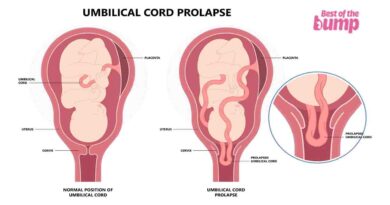Can folic acid stop miscarriage
The topic of miscarriage is one that carries significant emotional weight for many individuals and couples who are trying to start or expand their families. It is a heartbreaking experience that can leave people with many questions and concerns. One question that frequently arises is whether folic acid, a well-known B vitamin, can prevent or stop miscarriage. Following we discuss the role of Folic acid.
Folic Acid: A Vital B-Vitamin
Before delving into the topic of folic acid and its potential role in preventing miscarriage, it is crucial to understand the importance of folic acid and its primary functions in the body.
Folic acid, also known as folate, is a water-soluble B vitamin. It plays a pivotal role in several essential functions within the body:
- DNA Synthesis: Folic acid is a key factor in DNA synthesis, which is vital for the development and repair of cells, including those of the developing fetus.
- Red Blood Cell Production: Folic acid is necessary for the production of red blood cells. A deficiency can lead to a type of anemia called megaloblastic anemia, characterized by abnormally large and underdeveloped red blood cells.
- Neural Tube Development: During early pregnancy, folic acid is critical for the development of the baby’s neural tube, which eventually forms the brain and spinal cord. A deficiency in folic acid during pregnancy can lead to neural tube defects (NTDs) in the developing fetus.
Given its significant role in pregnancy, it is no surprise that folic acid is often associated with prenatal health.
Folic Acid and Neural Tube Defects
One of the most well-established and well-known benefits of folic acid during pregnancy is its ability to prevent neural tube defects (NTDs) in the developing fetus. NTDs are severe birth defects that affect the baby’s brain and spinal cord. These defects can lead to lifelong health challenges and disabilities.
Folic acid’s effectiveness in preventing NTDs has been extensively studied and documented. It is recommended that women of childbearing age, especially those planning to become pregnant, take folic acid supplements to reduce the risk of NTDs. This is typically done before conception and during the early weeks of pregnancy when the neural tube is forming.
Can Folic Acid Prevent Miscarriage?
The relationship between folic acid and miscarriage is a complex and often debated topic. While folic acid is undeniably beneficial for fetal development and can prevent certain birth defects, it may not have the same direct impact on miscarriage prevention.
The Role of Folic Acid in Pregnancy
To understand the potential link between folic acid and miscarriage, it’s important to recognize that miscarriage can occur for a variety of reasons. Some of the common causes of miscarriage include chromosomal abnormalities, uterine issues, hormonal imbalances, infections, and lifestyle factors. These factors are not typically related to folic acid intake.
Folic Acid and Recurrent Miscarriages
In some cases, individuals who have experienced recurrent miscarriages may undergo medical evaluations to determine the underlying causes. One possible factor that can be assessed is the level of folic acid in the body. Folic acid deficiency can contribute to various health issues, including those that may affect pregnancy. Therefore, it is essential to ensure that folic acid levels are within the recommended range.
Benefits of Folic Acid Supplementation
While folic acid may not directly prevent miscarriage, it can still offer important benefits during pregnancy:
- Reducing the Risk of Neural Tube Defects: As previously mentioned, folic acid significantly reduces the risk of NTDs in the developing fetus. This alone underscores the importance of folic acid supplementation during pregnancy.
- Supporting Fetal Development: Folic acid plays a critical role in cell division and the formation of DNA. It is essential for the healthy development of the fetus.
- Preventing Maternal Anemia: Folic acid helps in the production of red blood cells. This can reduce the risk of maternal anemia, which can lead to fatigue and other health issues during pregnancy.
Some Important Factors to Consider
When exploring the relationship between folic acid and miscarriage, it’s essential to consider the following factors:
- Individual Health: Every pregnancy is unique, and the factors contributing to miscarriage can vary widely. Folic acid is just one piece of the puzzle.
- Timing: Folic acid is most effective in preventing NTDs when taken before conception and during early pregnancy. While it may not directly prevent miscarriage, it still supports overall maternal and fetal health.
- Consultation with Healthcare Providers: Individuals who have experienced recurrent miscarriages or have concerns about their folic acid levels should consult with healthcare providers. Medical evaluations can help identify potential factors contributing to miscarriage.
While folic acid is a vital B vitamin that plays a crucial role in prenatal health and significantly reduces the risk of neural tube defects, it may not have a direct impact on preventing miscarriage. Miscarriage can occur for various reasons, many of which are unrelated to folic acid intake.
For individuals who are trying to conceive or who have concerns about pregnancy, it is essential to maintain a healthy lifestyle, take prenatal supplements containing folic acid, and consult with healthcare providers when needed. These measures can contribute to overall maternal and fetal health, reducing the risk of birth defects and supporting a healthy pregnancy journey.
If you have concerns about miscarriage or folic acid intake, discussing your questions and apprehensions with healthcare providers can provide you with personalized guidance and reassurance. Remember that miscarriage is a complex issue with multiple potential causes, and support is available to those who need it during this challenging time.





